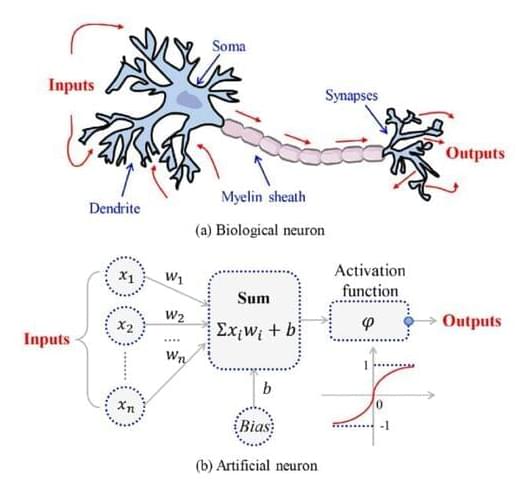Category: media & arts – Page 43
Self-Repairing Machines
The first 150 people to join Planet Wild clicking this link or adding my code ISAAC7 later will get their first month for free https://planetwild.com/r/isaacarthur/.…
If you want to get to know them better first, check out their video about restoring barren land under powerlines into thriving ecosystems: https://planetwild.com/r/isaacarthur/.…
We often try to distinguish between what is alive and what is a machine, and note that machines can’t reproduce or fix themselves, but that may soon change.
Visit our Website: http://www.isaacarthur.net.
Join Nebula: https://go.nebula.tv/isaacarthur.
Support us on Patreon: / isaacarthur.
Support us on Subscribestar: https://www.subscribestar.com/isaac-a…
Facebook Group: / 1583992725237264
Reddit: / isaacarthur.
Twitter: / isaac_a_arthur on Twitter and RT our future content.
SFIA Discord Server: / discord.
Credits:
Self-Repairing Machines.
Episode 457; July 25, 2024
Produced, Narrated \& Written: Isaac Arthur.
Editor:
Lukas Konecny.
Graphics:
Jeremy Jozwik.
Ken York.
Select imagery/video supplied by Getty Images.
Music Courtesy of Epidemic Sound http://epidemicsound.com/creator.
0:00 Intro.
0:17 Susan.
3:03 Fundamentals.
10:52 Sensing and Diagnostics.
14:19 Advanced Materials.
21:56 Robotics.
24:11 Artificial Intelligence

Neural Networks: From Biological to Artificial
Neural networks biological and artificial.
Neural Networks have found applications across various domains due to their ability to learn from data and improve over time without human intervention. They can solve challenging problems that are hard or impossible to solve using traditional methods. Here are some of the examples of how neural networks and artificial neurons are used in real-world scenarios:
Voice assistants: Voice assistants like Siri and Alexa use neural networks to understand spoken language commands and questions. They use trained models based on artificial neurons processing vast datasets of speech and text data. They can also generate natural-sounding responses and perform various tasks, such as playing music, setting reminders, searching the web, etc.
Self-driving cars: Self-driving cars use neural networks to perceive the environment and make decisions. They use trained models based on artificial neurons processing vast datasets of images, videos, and sensor data. They can also learn from their own experiences and improve their driving skills over time.
George Orwell
Thanks for visiting!Some public domain programs cannot be show due to bogus copyright claims. If you want to see complete public domain programs, visit https…
The Fermi Paradox: Fine Tuned Universe
The first 150 people to join Planet Wild clicking this link or adding my code ISAAC7 later will get their first month for free https://planetwild.com/r/isaacarthur/.…
If you want to get to know them better first, check out their latest video raising baby sharks and releasing them back into the wild: https://planetwild.com/r/isaacarthur/m17
Our universe is a strange place, with underlying rules we’re only just beginning to understand, but could the strangest thing of all about our Universe be that we are able to live here to observe it in the first place?
Join this channel to get access to perks:
/ @isaacarthursfia.
Visit our Website: http://www.isaacarthur.net.
Join Nebula: https://go.nebula.tv/isaacarthur.
Support us on Patreon: / isaacarthur.
Support us on Subscribestar: https://www.subscribestar.com/isaac-a…
Facebook Group: / 1583992725237264
Reddit: / isaacarthur.
Twitter: / isaac_a_arthur on Twitter and RT our future content.
SFIA Discord Server: / discord.
Credits:
The Fermi Paradox: Fine-Tuned Universe.
Episode 456; July 18, 2024
Produced, Narrated \& Written: Isaac Arthur.
Graphics:
Jeremy Jozwik.
Select imagery/video supplied by Getty Images.
Music Courtesy of Epidemic Sound http://epidemicsound.com/creator.
Music Courtesy of Epidemic Sound.
Lombus, \
Creation of the Humanoids 1962
Mind uploading and androids and neuromorphic components.

Hip-Hop History in Space: Missy Elliott’s Song Beamed to Venus by NASA
“Both space exploration and Missy Elliott’s art have been about pushing boundaries,” said Brittany Brown. “Missy has a track record of infusing space-centric storytelling and futuristic visuals in her music videos, so the opportunity to collaborate on something out of this world is truly fitting.”
The planet Venus just received a gift from NASA, but this time it’s not in the form of a spacecraft or lander, but instead in the form of a hip hop song transmitted by the agency’s Deep Space Network, “The Rain (Supa Dupa Fly)”, which was originally released in 1997 by the hip hop artist, Missy Elliott. Not only is Venus the favorite planet of Missy Elliott, but this also marks only the second time a song has been transmitted into the unknown, with the first being “Across the Universe” from The Beatles in 2008.
The song was sent to Venus on July 12, 2024, at 10:05 am PDT by the Deep Space Station 13 radio dish antenna located in Barstow, California, with the command being sent from NASA’s Jet Propulsion Laboratory in Pasadena, California. The song took approximately 14 minutes to reach Venus traveling at the speed of light.